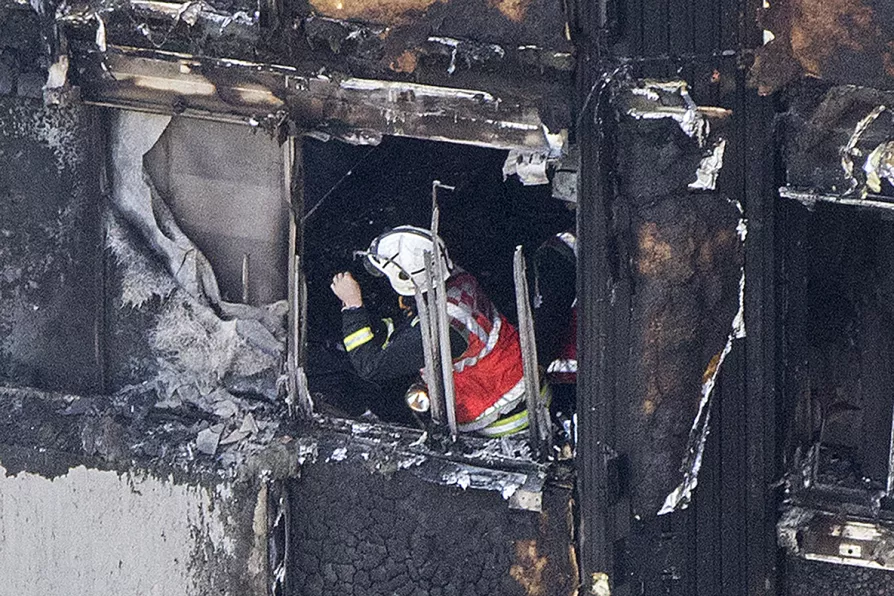One in four Grenfell firefighters are suffering life-changing health issues, study finds

 A firefighter investigates a floor after a fire engulfed the 24-storey Grenfell Tower in west London, June 14, 2017
A firefighter investigates a floor after a fire engulfed the 24-storey Grenfell Tower in west London, June 14, 2017
DEMANDS mounted today for health monitoring of Grenfell survivors and fire crews after research revealed more than a quarter of service responders are suffering long-term health issues.
The University of Central Lancashire analysed data available from 524 of the 628 firefighters who attended the tower block fire in 2017.
Life-changing conditions were reported by 136 of these, including 11 cases of cancer, 64 respiratory diseases, 22 neurological disorders and 66 digestive illnesses.
Similar stories

MPs say ministers have 'heads in sand' on safety













